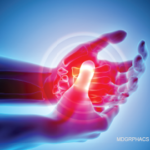“The lived experience with RA is itself a valuable form of expertise,” writes Dr. Liana Fraenkel, MD, MPH, of the Yale University School of Medicine, and colleagues in their latest research.
In the delivery of quality healthcare, clinical practice guidelines are a valuable tool focused on improving patient outcomes. Although the value of the patient perspective is generally understood—most medical societies include patients on their guideline voting panels—the question of how best to tap into and incorporate the expertise of informed patients remains. Dr. Fraenkel and colleagues set out to address this issue and published the results of their pilot study in the January 2016 issue of Arthritis Care & Research.
“Our goal was to better understand if there are differences between how a patient panel vs. a physician-dominated voting panel weigh the information presented in evidence tables when developing recommendations,” write the authors.
Using the ACR Grading of Recommendations, Assessment, Development and Evaluation (GRADE) method to develop evidence summary tables, researchers conducted two panels designed to make recommendations on 18 questions. The physician-dominated panel comprised nine physicians and two patients with rheumatoid arthritis (RA) who did not participate in the patient panel. The patient panel comprised 10 patients with RA who completed eight hours of training using the Collaborative Institutional Training Initiative (CITI) Human Subjects Protection training and the Cochrane Collaboration’s Understanding Evidence-Based Healthcare and Serving on a Clinical Practice Guideline modules.
Both panels had the same questions and followed the same voting rules. Additionally, two ACR representatives, one staff and one physician, with clinical practice guideline expertise were in attendance to facilitate the process.
The Results
“This pilot study demonstrates that patients can develop recommendations based on evidence summary tables,” write the authors. Early in the patient panel, participants confirmed that to make recommendations they needed “at least moderate quality evidence” due to their lack of medical expertise.
“The patient panel was able to develop recommendations for 16 of the 18 PICO [population, intervention, comparison and outcomes] questions with this level of evidence,” write the authors. “They chose not to vote on two questions because they thought that they did not have enough direct data to support a recommendation.”
For the remaining 16 questions, the patient panel voted the same as the physician-dominated panel 13 times. For 10 of those 13 questions, the strength of the recommendations was also the same.
The patients expressed that the evidence tables should include more information on outcomes related to quality of life and non-serious adverse events, which they felt were important in weighing benefit vs. harm.



